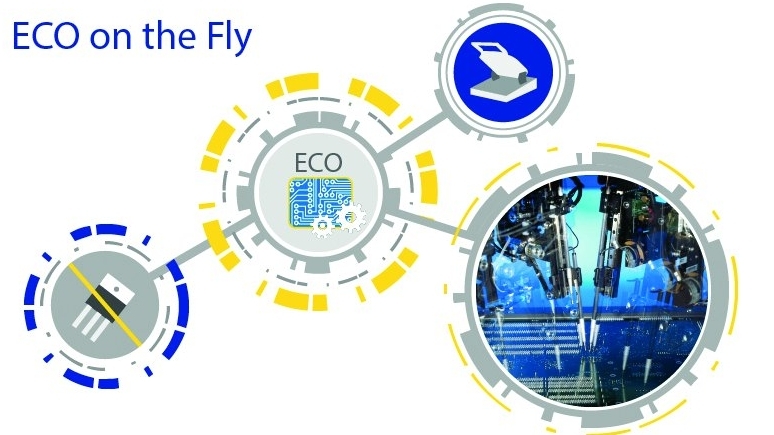Digitaltest introduces 'ECO on the Fly', a new concept that enables obsolescence and disruptions in the supply chain of electronic components to be intercepted during testing.
Supply chain disruptions, stoppages and obsolescence are causing major problems for electronics manufacturers and EMS service providers. Since the ongoing Covid-19 pandemic, the global supply chain has been severely affected. According to a recent survey by Dimensional Research and Supplyframe, 53% of product launches have been delayed or canceled due to Covid-19, 35% have had to redesign products to replace components that are no longer available and 37% said that component costs have increased. Change is the only constant - so a strategy is needed to respond flexibly to this change.
Design changes to PCBs as a necessary evil
Design changes to electronic assemblies, known as ECOs(Engineering Change Orders), are necessary when discontinued components have to be replaced and the geometry of an assembly changes as a result. In this case, the adapter and the associated test program must be changed manually. This is error-prone, time-consuming, costly and interrupts production. In the worst case, the adapter cannot be modified at all or a new adapter with a new test program has to be created or ordered, which leads to even longer downtimes and costs.
Because of these many component bottlenecks, it is usually not just one electronically assembled PCB, but many different ones with their respective adapters and test programs. The costs for this increase exponentially very quickly!
What is the alternative here? Fixtureless testing on the flying probe?
Fixtureless testing with a Condor Flying Probe would be a possible alternative, but the cycle times of a needle bed test system with fixtures are much shorter. This would be unthinkable in a production environment, especially for large quantities.
So what can you do if you have to constantly change assemblies without investing a lot of money?
With 'ECO on the Fly', Digitaltest has developed a process that combines the needle bed test with the flying probe test and uses C-LINK, Digitaltest's CAD/CAM software, to work out the delta of the two layout and parts list variants. With the data generated, the adapters and programs can be modified and the PCBs can continue to be tested on the needle bed test systems. Only the delta still needs to be tested on a flying probe. In the case of digital test programs, a test program can be created automatically. The Condor Flying Probe now only contacts the nets that cannot be reached with the needle bed adapter. The test results are then simply combined using a barcode.
As C-LINK can be used independently of the test system software, this Flying Probe station can be set up both inline and stand-alone and can also be used with existing adapters from other needle bed test systems on the market. With just one new test station, the Condor Flying Probe, it is now possible to handle all ECOs that occur on different assemblies. This means that it will also be possible to react flexibly and quickly to obsolescence, supply chain problems and component bottlenecks in the future.


